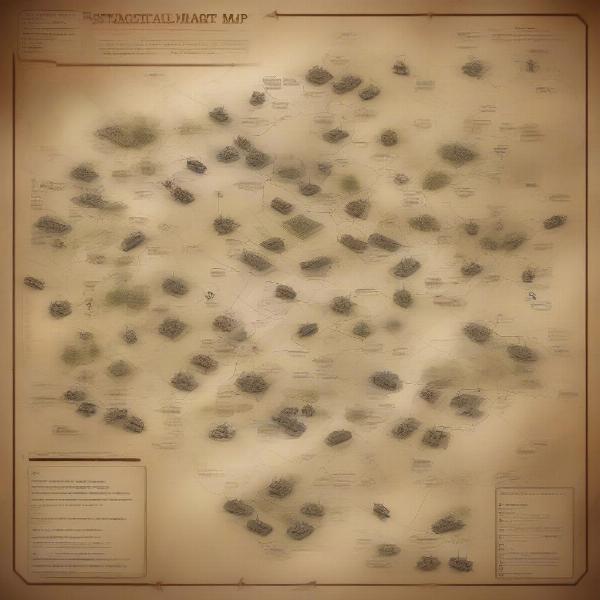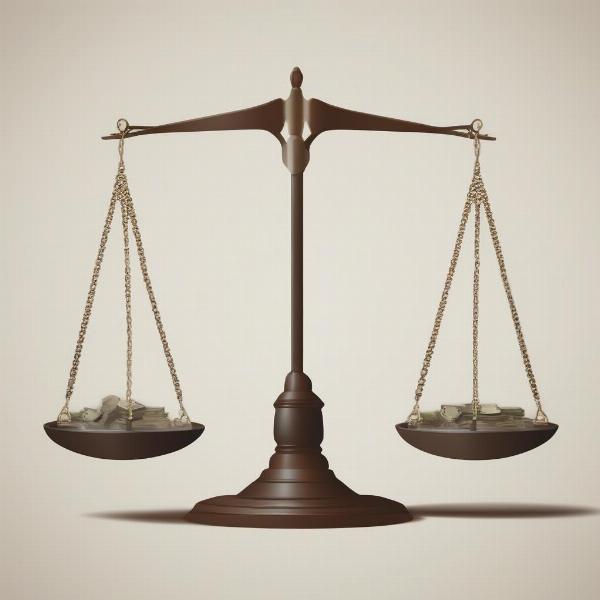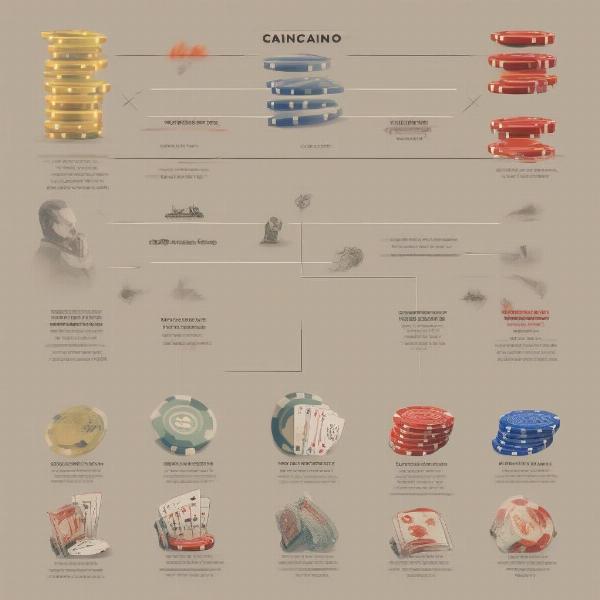At Supreme Duelist Blog, we often explore the intricate mechanics that govern games, dissecting the layers of strategy and chance. Today, we’re tackling a question that often looms large when discussing conflict: is war, in essence, a casino game? The comparison may seem flippant at first glance, but a deeper look reveals fascinating parallels between the calculated risks of a battlefield and the unpredictable nature of a high-stakes gamble.
This article will delve into the elements of chance, strategy, and human influence that shape both war and games of chance. We’ll explore how these factors interact to create outcomes that are often uncertain, examining the arguments for and against considering war as a form of extreme gambling, and ultimately aiming to shed light on the complexities of this very sensitive topic.
The Role of Chance in Conflict: Dice Rolls on the Battlefield
The notion of war being a ‘game of chance’ is often dismissed as simplistic, but it’s undeniable that unpredictability plays a significant role. Just like a roll of the dice or a spin of the roulette wheel, numerous factors in conflict are beyond any single actor’s complete control. Weather conditions, unexpected terrain, the morale of troops, even seemingly insignificant events can trigger cascading effects, drastically altering the course of battle. These elements, while not entirely random, operate with a degree of uncertainty that aligns with the concept of chance.
Consider the impact of unforeseen technological advancements or the sudden change in public opinion on a long-term conflict. These are not predetermined events but represent a form of ‘external’ dice roll that could drastically impact existing strategies. The sheer volume of variables interacting on a battlefield makes complete predictability impossible.
Strategic Planning vs. Unforeseen Circumstances: Is War Truly Deterministic?
While chance plays a part, strategic planning remains a crucial aspect of war. Military leaders meticulously develop plans, analyze their opponent’s strengths and weaknesses, and deploy forces to maximize their chances of success. Think of the complex planning behind the Normandy landings during World War II, or the detailed logistical operations required to maintain armies in the field. These are not just games of chance; they involve careful consideration and skillful execution.
However, even the most meticulously crafted strategies can be undone by unforeseen circumstances. A small error in communication, an unexpected act of bravery by the enemy, or a sudden resource shortage can derail even the most well-laid plans. This interplay between carefully constructed strategy and the unpredictability of the situation creates a dynamic where calculated risks are essential, much like the decisions a gambler makes while playing poker or blackjack. The key difference is that, in war, the stakes are far, far higher.
 military strategy and planning
military strategy and planning
The Human Element: The Wild Card in Any Conflict
Beyond chance and strategy lies the human element. The courage, fear, resilience, and even incompetence of individuals play an enormous role in shaping the outcome of conflicts. A brilliant military plan can crumble if soldiers panic in the face of enemy fire, or an ill-equipped army may succeed due to incredible bravery and resourcefulness. These individual acts of defiance, or the failures and successes of leadership, introduce another layer of variability into the equation.
Psychology plays a vital role. The mental and emotional states of soldiers and commanders can significantly influence the course of conflict, often in unpredictable ways. Motivation, morale, and even simple fatigue can be as decisive as superior weaponry. “In warfare,” says Dr. Eleanor Vance, a historical military analyst, “human emotions are the volatile element, turning seemingly straightforward calculations into a chaotic dance of unpredictability.” This emphasizes how the human aspect is, itself, a type of “chance” factor.
The Gamble of War: Assessing Risk and Potential Rewards
When we consider the risks and rewards involved, it becomes even clearer how war shares similarities with gambling. The decision to engage in conflict is, fundamentally, a gamble. Leaders weigh the perceived benefits against the potential costs – casualties, economic devastation, loss of geopolitical power – and make a decision that, while based on calculations and projections, ultimately involves taking a chance on an uncertain outcome.
Just like a high-stakes poker player, nations might “bluff” by demonstrating military strength, knowing that a show of force can change the odds without actually engaging in a conflict. The “bets” in this case are enormous – lives, resources, and the future stability of nations. This risky behavior demonstrates how close warfare can be to a particularly destructive form of a high-stakes gamble.
 war risk and rewards illustration
war risk and rewards illustration
Is War a Zero-Sum Game? Examining the Absence of Guarantees
A common characteristic of casino games is that they often operate as zero-sum games, meaning that one player’s gain directly equates to another player’s loss. War often mirrors this characteristic. However, the outcomes are rarely as cut-and-dried as wins and losses. Victory can be Pyrrhic, with devastating long-term consequences for the supposed “winners”, and even the losing side may sometimes derive an advantage from war.
The idea of a guaranteed victory is an illusion. Even the most powerful military force can suffer setbacks, and even the most seemingly hopeless resistance can achieve unexpected successes. There are no guarantees in warfare, no matter how favorable the initial odds appear. The lack of guarantees, that essential aspect of chance, makes this point even stronger in the ‘War as a game’ analysis.
Frequently Asked Questions: Exploring the Nuances of Conflict
Is war purely a game of chance?
No, while chance plays a role, war involves significant strategic planning and human elements. It’s a complex interaction of these factors, not just random events.
Does strategic planning guarantee victory?
No, even meticulously crafted strategies can be undone by unforeseen circumstances. The element of unpredictability is always present.
How does the human element impact conflict?
Individual courage, fear, and incompetence can drastically alter outcomes. Psychological factors also play a key role.
Are there guaranteed winners in war?
No, even the most powerful side can suffer setbacks. War often has unexpected consequences for all parties involved.
Is there a way to eliminate chance from war?
No, given the complexity of variables, perfect predictability is impossible. Chance will always remain an element in conflict.
Can wars be considered a zero-sum game?
War often operates like a zero-sum game. However, the long-term outcomes can be more nuanced than simple wins and losses.
Drawing Parallels: How Casino Games and War Reflect Human Behavior
Ultimately, comparing war to a casino game isn’t about trivializing the devastating impact of conflict; instead, it’s about examining the underlying human factors that fuel both. The willingness to take risks, the pursuit of perceived rewards, the desire to outsmart an opponent, and the acceptance of uncertainty are all present in both. The difference lies, of course, in the stakes involved – in war, those stakes are human lives and global stability.
“Looking at war through the lens of a high-stakes gamble helps us better understand the mindset behind it,” notes Professor James Keller, a political scientist specializing in conflict resolution. “It exposes the deep-seated tendencies of humans to make calculated risks, often with limited information, when driven by the pursuit of gain or the desire to overcome an adversary.” This shows that the human condition itself is inextricably linked to these high stakes gambles.
 comparing war and casino games
comparing war and casino games
Conclusion: A Complex Equation of Strategy, Chance, and Humanity
So, Is War A Casino Game? The answer, as we’ve explored, is not a simple yes or no. War, like many high-stakes endeavors, possesses elements that mirror a gambling game – the inherent unpredictability, the calculated risk-taking, and the potential for catastrophic loss. But unlike a casino game, war is infused with layers of human complexity, emotional weight, and irreversible consequences. Understanding this blend of elements is critical if we are to approach the study of warfare with the depth and thoughtfulness it requires.
At Supreme Duelist Blog, our goal is to provide insightful analysis of the mechanics and tactics at play in games and real-world scenarios. This exploration of the relationship between war and gambling underscores the importance of understanding the nuanced interplay of chance, strategy, and human action. This understanding is paramount to analyzing and understanding complex challenges. We invite you to delve deeper into our other articles exploring the dynamics of decision-making and conflict, and consider the long term implications of the complex choices presented in both.
Leave a Reply